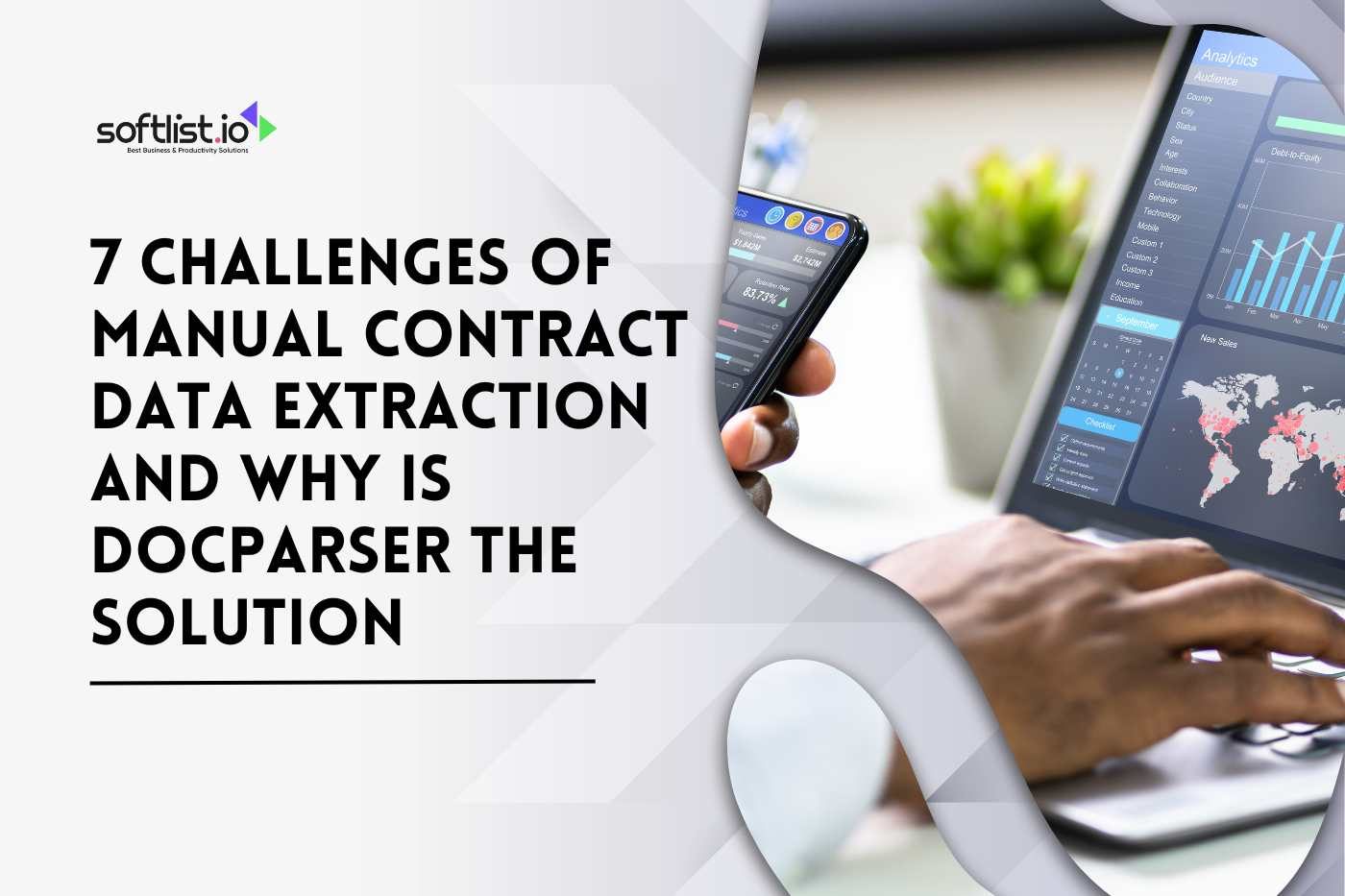Getting the right hosting for your WordPress site is very important for its success. Whether you run a personal blog, a business website, or an online store, WordPress VPS hosting is a powerful way to make your site run faster.
This article will explain what WordPress VPS hosting is, what its benefits are, and how you can make your site run better if you use this hosting option. You’ll learn everything you need to know to get the most out of VPS hosting for your WordPress site if you stick around.
Key Takeaways:
- Enhanced Performance and Control with VPS Hosting: VPS hosting provides dedicated server resources, ensuring better performance, scalability, and control for WordPress sites compared to shared hosting. This makes it ideal for high-traffic websites that require consistent uptime and fast loading times.
- Security Benefits of VPS hosting: VPS hosting offers enhanced security by isolating your WordPress site from others on the same server. This reduces the risk of malware and other security threats, making it a safer option for website owners.
the Best - Ideal for High-Traffic WordPress Sites: VPS hosting is particularly beneficial for WordPress sites with high traffic, as it can handle increased traffic loads effectively. The scalable resources ensure that your site remains fast and responsive, even during peak traffic periods.
- Importance of Choosing the Right VPS Hosting Plan: Selecting the right VPS hosting plan is crucial for the success of your WordPress site. Key features to consider include ample server resources, reliable uptime, robust security measures, and a user-friendly control panel.
- Optimization and Customization for Better Performance: Optimizing your WordPress installation on a VPS, such as by using caching plugins and configuring server settings, can significantly improve your site’s performance. Customizing your VPS to meet your specific WordPress needs enhances both performance and security.
What is WordPress VPS Hosting and How Does It Work?

Source: Canva Pro
Understanding Virtual Private Server (VPS)
A Virtual Private Server (VPS) is a type of web hosting plan that uses virtualization technology to provide dedicated resources on a physical server. Unlike a shared hosting environment, where multiple sites share the same server resources, VPS hosting allocates specific resources such as RAM, CPU, and storage to each user.
This ensures that your WordPress VPS servers operate independently from others on the same server, offering improved performance, scalability, and control. This type of hosting is generally ideal when your WordPress website outgrows shared hosting and you need a more robust solution.
Benefits of Using VPS for WordPress Hosting
There are numerous advantages to using VPS hosting for your WordPress site. First and foremost, VPS hosting provides better performance due to the dedicated server resources. This is particularly important for high-traffic WordPress sites that require consistent uptime and fast loading times.
Additionally, VPS hosting uses greater flexibility and control, enabling you to install custom software, configure server settings, and optimize your site’s performance.
Enhanced security is another significant benefit, as a VPS isolates your site from others, reducing the risk of cyber threats. Moving to VPS is better when you need more power and security for your WordPress platform.
Comparing VPS Hosting to Shared Hosting and Dedicated Hosting
When choosing the right hosting solution for your WordPress site, it’s essential to understand the differences between shared hosting, VPS hosting, and dedicated hosting. Shared hosting is the most cost-effective option, but it comes with limitations in terms of performance, security, and control.
VPS hosting for businesses strikes a balance by offering dedicated resources at a more affordable price than a dedicated server. Dedicated hosting provides the highest level of performance and control, but it is also the most expensive option.
If you host your WordPress site and find that your current hosting no longer meets your needs, VPS hosting is a type of WordPress solution that may be the right choice.
Dedicated WordPress servers offer a higher level of control, but a VPS is better suited for those who need more power than shared hosting but are not ready for investment in a dedicated server. Reseller hosting can also be an option, but it’s typically used for businesses that want to offer hosting services.
Choose VPS when your WordPress website outgrows shared hosting, and you need a reliable and scalable solution that is supported by the WordPress community and trusted by WordPress experts.
Why Do You Need a VPS for Your WordPress Website?

Source: Canva Pro
When to Upgrade to VPS Hosting
Deciding when to upgrade to VPS hosting depends on several factors. If your WordPress website experiences frequent traffic spikes, slow loading times, or security issues, it may be time to consider a VPS hosting plan.
Additionally, if you require more control over your server environment, such as root access and custom configurations, VPS hosting is a suitable option. Upgrading to VPS hosting can significantly enhance your site’s performance, reliability, and security, making it a worthwhile investment.
Advantages of VPS for High-Traffic WordPress Sites
High-traffic WordPress sites have unique demands that shared hosting often cannot meet. VPS hosting is designed to handle increased traffic loads by providing dedicated server resources and enhanced performance. This ensures that your site remains fast and responsive, even during peak traffic periods.
Furthermore, VPS hosting solutions offer scalable resources, allowing you to adjust your plan as your traffic grows, ensuring consistent performance and user experience.
Enhanced Security with VPS Hosting
Security is a critical concern for any website owner, especially those running WordPress sites. VPS hosting offers enhanced security features compared to shared hosting. With a VPS, your site is isolated from others on the same server, reducing the risk of malware and other security breaches.
Additionally, VPS hosting providers often include advanced security measures such as firewalls, DDoS protection, and regular backups. This added layer of security ensures that your WordPress site remains safe and protected.
How to Install WordPress on a VPS?

Source: Canva Pro
Step-by-Step Guide to Setting Up Your VPS Server
Installing WordPress on a VPS requires several steps, but the process is straightforward. First, you need to purchase a VPS hosting plan from a reputable provider. Once you have access to your VPS server, you will need to install web server software such as Apache or Nginx.
Next, set up a database for your WordPress site using MySQL or MariaDB. After configuring the server environment, you can download and install WordPress. Follow the on-screen instructions to complete the installation process and set up your WordPress site.
Configuration Tips for Optimal Performance
Configuring your VPS for optimal performance is essential for maximizing the benefits of WordPress VPS hosting. Start by optimizing your server settings, such as increasing the PHP memory limit and enabling Gzip compression. Implement a caching solution, such as a caching plugin, to reduce server load and speed up page load times.
Additionally, use a content delivery network (CDN) to distribute your content globally, ensuring faster load times for users around the world. Regularly monitor your server performance and make necessary adjustments to maintain optimal performance.
Common Issues During Installation and How to Fix Them
During the installation of WordPress on a VPS, you may encounter common issues such as database connection errors, permission issues, or server configuration problems. To resolve database connection errors, ensure that your database credentials are correct and that the database server is running.
For permission issues, verify that the file and directory permissions are set correctly. If you encounter server configuration problems, review your server logs to identify the issue and make the necessary adjustments. Seek assistance from your hosting provider if you are unable to resolve the issues on your own.
What to Look for in the Best WordPress VPS Hosting Plans?

Source: Canva Pro
Key Features of a Reliable Hosting Provider
Choosing the best WordPress VPS hosting plan requires careful consideration of key features. Look for a hosting provider that offers robust server resources, including ample RAM, CPU power, and storage.
Reliable uptime is crucial, so select a provider with a proven track record of high uptime percentages. Additionally, ensure that the provider offers excellent customer support, including 24/7 availability and knowledgeable support staff. Other important features include security measures, backup solutions, and scaling options.
Performance Metrics: RAM, Uptime, and Server Resources
Performance metrics are critical indicators of the quality of a VPS hosting plan. RAM (Random Access Memory) is essential for the smooth operation of your WordPress site, especially if you run resource-intensive plugins or handle high traffic.
Uptime refers to the percentage of time your server is operational and accessible. Aim for a hosting provider that guarantees at least 99.9% uptime. Evaluate the server resources offered by the VPS plan, including CPU cores and storage capacity, to ensure they meet your site’s requirements.
Importance of a User-Friendly Control Panel
A user-friendly control panel is an important aspect of managing your VPS hosting environment. A control panel allows you to easily manage your server settings, install applications, and monitor performance. Popular control panels for VPS hosting include cPanel, Plesk, and DirectAdmin.
Choose a VPS hosting plan that includes a control panel that is easy to use and offers comprehensive features. This will streamline the management of your WordPress site and enhance your overall hosting experience.
13 Tips for Success with WordPress VPS Hosting

Source: Canva Pro
1. Choose the Right VPS Plan
Choosing the right VPS plan is very important for the success of your WordPress site. Look for a plan that gives you enough resources to handle the amount of traffic and performance needs of your website. Cloud VPS, scalable VPS, and dedicated server hosting are some of the options you can look at to find the best one for you.
Make sure the plan has things like a control panel that is easy to use and the ability to support multiple WordPress sites. If you pick the right VPS plan, your WordPress installation will do very well. Compared to shared hosting, VPS plans offer faster speeds, more reliable service, and more ways to customize your site.
2. Opt for Managed WordPress Hosting
Managed WordPress hosting makes things easier for you by taking care of technical tasks like backups, updates, and security. People who don’t want to deal with the details of managing a server will benefit the most from this service.
With managed VPS hosting, you can focus on making content for your WordPress site while the hosting company takes care of its speed and safety. Managed WordPress hosting plans usually come with expert support to help you fix problems quickly and make sure your site runs smoothly on a fast VPS.
3. Utilize a User-Friendly Control Panel
You need a control panel to effectively manage your VPS and WordPress installation. Pick a VPS hosting plan that comes with a control panel like cPanel or Plesk. These panels make it easier to do things like set up email accounts, manage databases, and add WordPress plugins.
It’s easier to host multiple WordPress sites and grow your VPS as your website does with a good control panel that makes all the tools you need to manage your hosting account easy to get to.
4. Prioritize Security with Regular Updates
When you’re running WordPress on your VPS, security is very important. It’s important to keep WordPress, plugins, and themes up to date so that your site is safe from security holes. Automatic updates are often part of managed VPS hosting, which keeps your website safe at all times.
You might also want to use security plugins and set up your server to make it safer. To keep your WordPress site safe, you should also look into hosting companies that offer strong security features like firewalls and DDoS protection.
5. Optimize Your WordPress Installation
To make your website run faster on a VPS, you need to optimize your WordPress installation. This includes using caching plugins, making sure images are optimized, and avoiding using plugins that aren’t needed.
WordPress sites that are well-optimized not only load faster but also use fewer server resources, which makes them perfect for VPS hosting. Check your site’s performance often and make changes as needed to make sure it stays quick and effective even as traffic grows.
6. Take Advantage of 1-Click WordPress Installations
A lot of VPS hosting companies let you install WordPress with just one click, which makes it easier to get your site up and running quickly. This feature is especially helpful for people who host more than one WordPress site because it makes the installation process faster and easier.
You can set up WordPress with just a few clicks; then you can focus on making changes to your site and adding content. To make setting up WordPress easier, make sure that this feature is part of your VPS plan.
7. Consider Cloud Hosting for Scalability
Cloud hosting is a great choice for WordPress sites that need to be able to grow. Cloud VPS hosting is different from traditional VPS hosting because it lets you scale your resources based on demand.
This makes it perfect for sites whose traffic changes often. This gives you the freedom to make sure that your website stays fast and reliable even when traffic goes up. When picking a VPS hosting plan, think about cloud hosting options that let you easily scale your VPS to give your WordPress site the resources it needs as it grows.
8. Use High-Performance VPS Solutions
Choose a high-performance VPS service with powerful CPUs, SSD storage, and lots of RAM for the best WordPress performance. These features are very important for hosting companies that want to make sure that WordPress sites load quickly and correctly.
With a high-performance VPS, your site will be able to handle a lot of visitors and complicated tasks without slowing down. To get the fastest and most reliable speed for your WordPress site, look for hosting companies that focus on high-performance VPS.
9. Host Multiple WordPress Sites on a Single VPS
If you’re in charge of more than one WordPress site, you might want to look into a VPS plan that lets you host all of them on the same server. This setup can help you save money and make things easier to manage.
Make sure that your VPS has enough resources to handle multiple sites without slowing them down. A lot of managed VPS hosting plans come with tools for managing multiple WordPress installations. This makes it easier to keep everything in order and running smoothly.
10. Monitor and Manage Your VPS Regularly
For the best performance, you need to manage and keep an eye on your VPS on a regular basis. You can keep an eye on server usage, bandwidth, and resource allocation with the help of tools in your hosting control panel.
A lot of managed WordPress hosting plans come with monitoring services that let you know about problems before they happen. You can make sure your WordPress site keeps running well and meeting your visitors’ needs by keeping up with your VPS management.
11. Customize Your VPS for WordPress Needs
You can improve the performance and security of your WordPress site by making changes to your VPS to fit its needs. This could mean making changes to the server settings, making databases work better, or setting up caching systems. You can usually make these changes with managed VPS hosting, which lets you make the server environment fit your WordPress installation.
A well-configured VPS makes sure that your site works well, which gives your visitors a better experience.
12. Choose the Best Hosting Platform
For long-term success, you must choose the best hosting platform for your WordPress VPS. Look for platforms that have a lot of different features, such as the ability to grow, strong security, and great customer service.
For example, InMotion Hosting is known for its reliable VPS hosting for WordPress. They have different plans to meet different needs. To make sure you pick a platform that will work with your WordPress site as it grows, look at hosting companies based on their reputation, customer reviews, and the features they offer.
13. Plan for Future Growth and Scalability
Once your WordPress site gets too big for shared hosting, VPS hosting is the next step up because it gives you more control and resources. Choose a VPS hosting plan that is easy to expand on if your business grows in the future.
This makes sure that your WordPress site can handle more content and traffic without slowing down. A lot of hosting companies offer scalable VPS plans that let you change your plan as needed. This gives you the freedom to let your website grow as time goes on.
Final Thoughts
Picking the right VPS hosting for your WordPress site is important to make sure it works well, is safe, and can grow as needed. You can keep your site safe, keep it loading quickly, and handle a lot of visitors if you choose a plan that fits your needs.
You can get the most out of your VPS by regularly optimizing your WordPress installation and making sure your security measures are up to date.
If you are in charge of more than one WordPress site, hosting them all on the same VPS can save you money and time. Remember to keep an eye on your server on a regular basis to make sure it can keep up with your growing needs.
Are you ready to make your WordPress site run faster? Check out our ‘Guidelines to Build your Website by Using WordPress’ and start making your site better right away.
Come across the ideal product for you by checking Softlist’s ‘Top Reviews’ and taking advantage of our current ’Deals’!
FAQs: WordPress VPS Hosting
Is VPS Hosting Good for WordPress?
Yes, VPS WordPress hosting is excellent for WordPress sites, especially if your website outgrows shared hosting. It offers dedicated resources on virtual servers, improving performance and security, making it one of the best WordPress hosting solutions available.
Can I Install WordPress on VPS Hosting?
Absolutely, you can install WordPress on a VPS without much hassle. Many hosting services offer one-click WordPress installation, making it easy to set up and manage your website on VPS WordPress servers.
What is the Minimum VPS for WordPress?
The minimum VPS for WordPress should have at least 1GB of RAM and 20GB of storage. However, the best WordPress VPS plans offer more resources, ensuring your site runs smoothly even with multiple WordPress themes and plugins.
What is the Difference Between VPS and Shared Hosting for WordPress?
The key difference between shared and VPS hosting is resource allocation. In shared hosting, multiple sites share a single server, while VPS WordPress hosting provides dedicated resources on a virtual server, resulting in better performance and security.
Is VPS Better than Web Hosting?
VPS is generally better than traditional web hosting, especially for businesses or websites needing more control and power. It offers a step up from shared hosting plans by providing dedicated resources, making it a superior service for WordPress sites.





